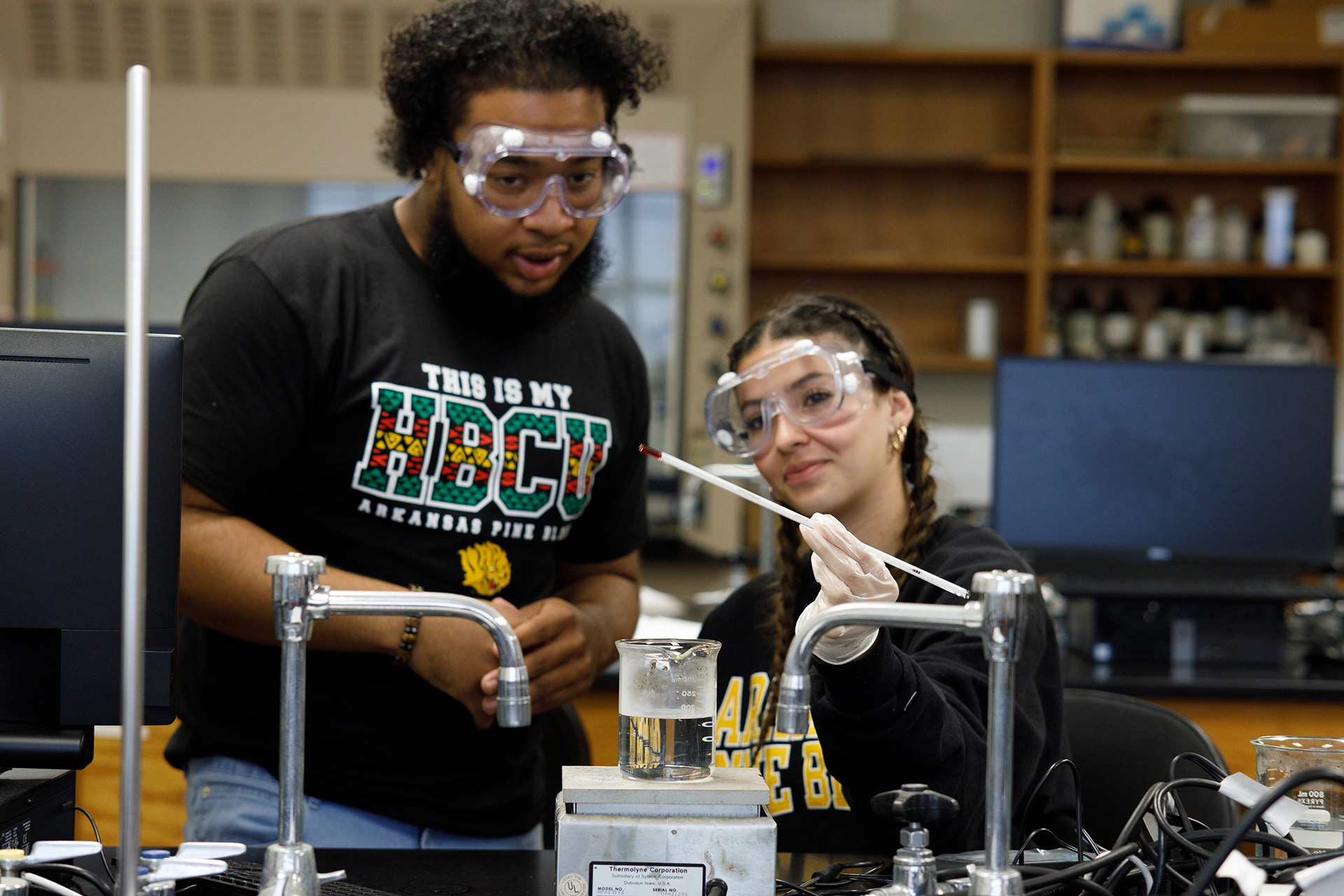Program Uniqueness
One of the few institutions engaged in emerging studies in nanotechnology, nanomaterials, and space physics.

Welcome to the Department Chemistry and Physics! We’re home to world-renowned artists including Kevin Cole, Jeff Donaldson, and Henri Linton, and now is a great time to join our program.
Did you know that
our department
takes pride in:
One of the few institutions engaged in emerging studies in nanotechnology, nanomaterials, and space physics.
Careers for program graduates include investment analyst, meteorologist, operational researcher, actuary and systems developer and more.
Students have opportunities to participate in state and national conferences such as the Arkansas INBRE Research Conference.

With a $5 million grant from the National Science Foundation (NSF), the UAPB will lead a collaboration with the University of Arkansas, Fayetteville (UAF) and the University of Arkansas at Little Rock (UALR) to establish a Quantum Information Science and Engineering (QISE) program.
UAPB is one of three historically Black colleges, and universities (HBCUs) awarded the 2022 NSF Expanding Capacity in Quantum Information Science and Engineering program (ExpandQISE) grant, along with Howard University and Morehouse College. According to the Expand QISE Program, the award grants up to $5 million over five years to advance Quantum information into a new generation of computers, detectors, and new materials of the future. Learn More
The Department of Chemistry and Physics offers a nanoscience option for the Bachelor of Science degree in Chemistry and Physics. The option will encompass core science courses in physics, chemistry, and math, with different focuses on nanoscience and technology such as nanomaterials, nanoelectronics, nanophotonics, and nanochemistry. Click here for news.
Nanoscience is an interdisciplinary field that involves physics, chemistry, biology, and engineering. Students will be trained both on theoretical, computational, and experimental analysis of science at the nanoscale level. By 2024 the global nanomaterial market is expected to exceed $125 billion for this field. Learn more about this degree program.
